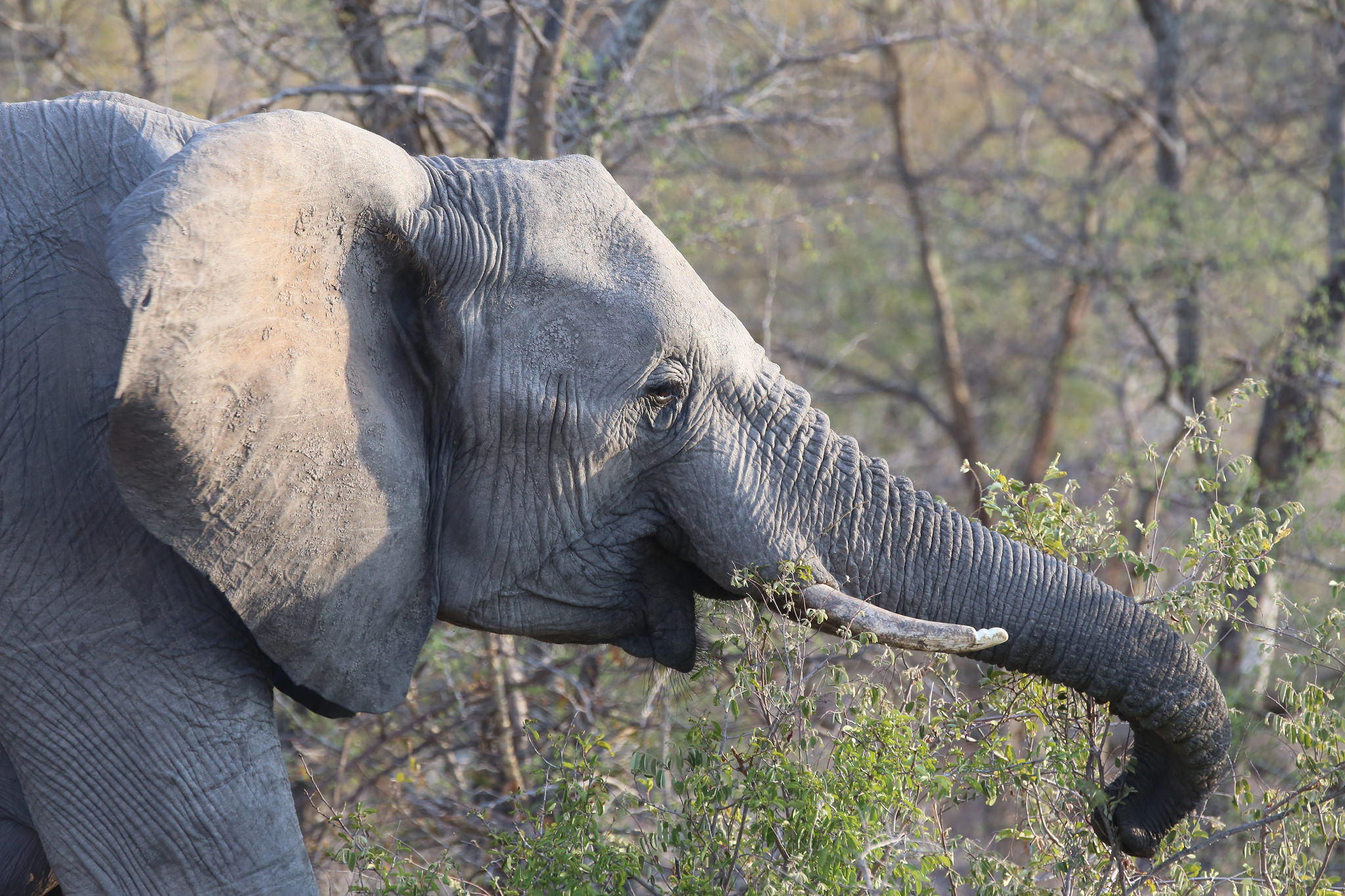I was privileged to be amongst herd of wild African Elephants in February this year (2016)
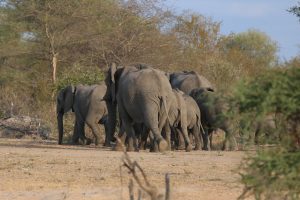
What struck me for this largest of all living land-based animals was how quiet and peaceful they were. Even their footsteps were silent.
Growth and Teeth
I was interested to learn that Elephants never stop growing throughout their life and that they usually have about six sets of teeth. These molars become bigger and bigger and one can reach over 20 centimetres long and weigh as much as two bags of sugar. Eventually they run out of replacement teeth and grind down the last set until in effect it can no longer chew enough grass to live.
The local wildlife trackers showed me how to recognise elephant dung and even age the animal; droppings with a lot of rough undigested grass were older elephants whereas the babies left a smooth well ground down consistency.
Matriarchal Society
The other thing I noticed was the subtle sophisticated social structure within the herd. There was a definite order to where animals were positioned and who they were with. Lots of touching each other with their trunks – patting, nudging, stroking and holding. Apparently, an elephant’s skin is so sensitive it can feel an insect land. One enormous cow was most definitely the boss. She stood slightly apart from the herd as they worked the area for food, standing stock still, facing us square on, giant ears extended (to look bigger). We respectfully made as little sound or movement as possible until she was happy that the herd had moved on and that we posed no threat.
Hearing through their feet
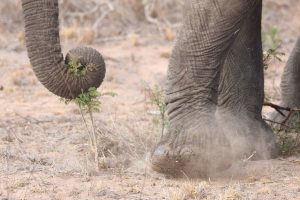
Elephant’s feet are very sensitive. I watched a mother gently use her foot to scrape away some branches around a small sapling and then guided her youngster to eat the young shoots. Elephants make ultra-low frequency vocal sounds that can been ‘heard’ through the soles of their feet. The vibrations travel through the ground, up through the feet, the leg and shoulder bones and to the middle ear. They can even detect the most subtle seismic activity and tiniest earth tremors. And this got me thinking I should take off my shoes and connect my bare feet to the surface of the earth more often? Doesn’t grass feel great on the feet? What about the shingle on the beach? Painful at first but with care and after some time you get used to it. But can I hear through my feet? I certainly can sense things, and my ancestors probably had their senses much sharper as they spent much more time with bare foot on the earth. I wonder what skill might have been lost or could even be regained with concentration and a heightened sense of awareness? And paddling in the sea (even in December) invariably leaves me feeling refreshed for hours after.
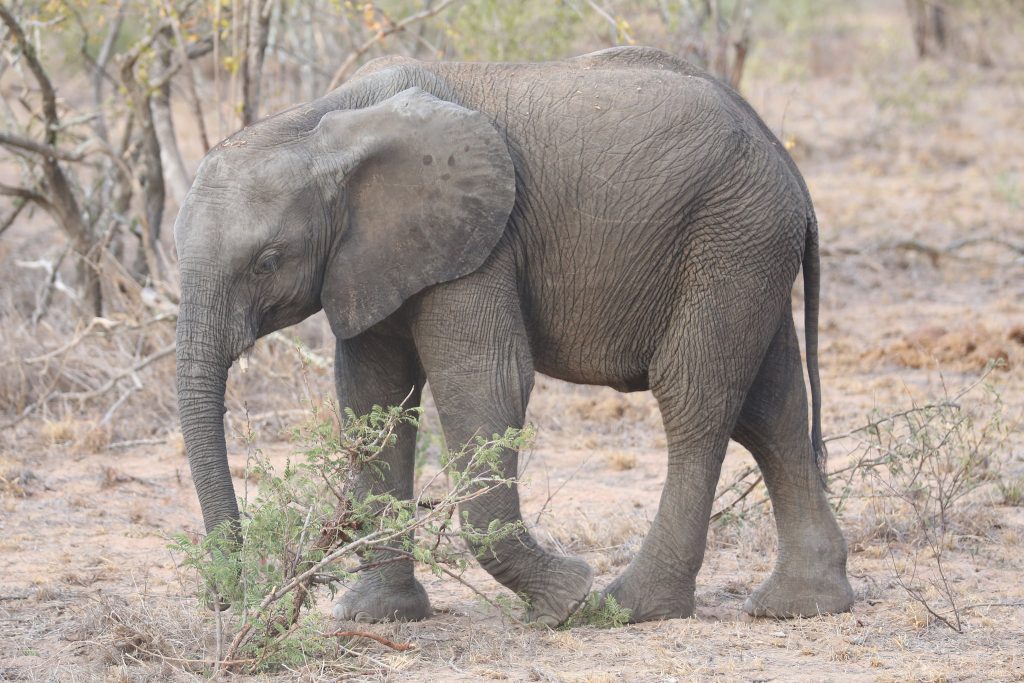
The trouble with touch
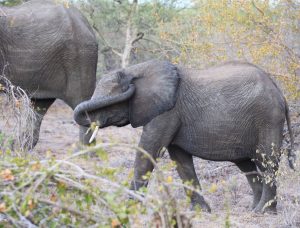
What about all that touching these Elephants do? There are over 40,000 muscles in that sensitive trunk which can feel and pick up a single grain of rice.
Their use of this ultra-sensitive and dexterous trunk to touch is probably akin to something between the sensitivity of our hands and lips. I’m probably what you would call ‘touchy feely’. I am naturally prone to affirm bonds and friendships with a hug or holding hands or, with permission, even holding a face. Yet I‘m acutely aware that some people find this uncomfortable or inappropriate. I think the trouble is that we have sanitised and compartmentalised touch – particularly in England and Ireland. When I greet my relatives in Holland three kisses on the cheeks is the norm. Saint Paul writes to “Greet each other with a holy kiss”. Is team sports the only socially acceptable way for humans to use touch for bonding?
Two Mothers Connect
Empress shepherds her people with silent grace and grandeur.
Her sure majestic posture broadcasts security as her subjects are held in love.
She pauses, her feet listening to Mother Earth’s trembling breath
And as Gaia carries the ancient deep song of the Tusked One,
Two Mothers bond in mutual primordial exchange.


